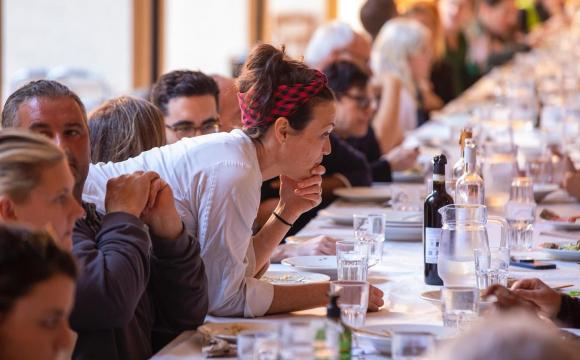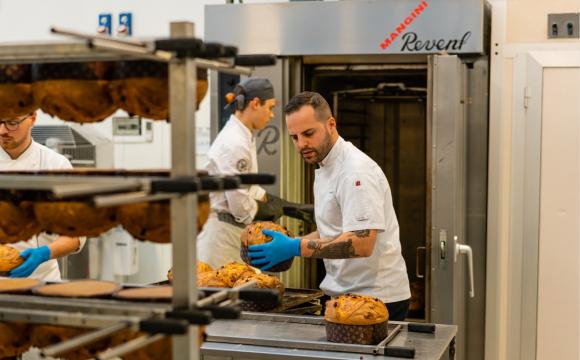
Daniele Mastrogiacomo, an Italian journalist freed on Monday after 15 days in the hands of Taliban kidnappers, appealed on Friday for news of his Afghan interpreter Adjmal Nashkbandi.
Mastrogiacomo, a reporter for Italian daily La Repubblica, urged the Afghan government to "intervene so that we can have reassuring news about Adjmal as soon as possible".
Mastrogiacomo was abducted by the Taliban together with Nashkbandi and Afghan driver Saied Agha near the southern city of Lashkar Gah on March 5.
The correspondent had been attempting to interview Taliban leaders in the surrounding lawless province of Helmand, where NATO has just unleashed the biggest offensive since the 2001 war that toppled the Islamists.
Agha, a 25-year-old father of four, was later beheaded by his captors, accused of being a spy.
Nashkbandi was initially reported to have been freed with Mastrogiacomo on Monday as part of a deal which entailed the release of five Taliban prisoners held by the Afghan government.
Mastrogiacomo reported seeing the interpreter released from his chains but he never showed up at a Lashkar Gah hospital run by Italian aid organisation Emergency where Mastrogiacomo was taken by his captors.
The interpreter's whereabouts are now unknown.
Initial reports speculated that Nashkbandi had been taken away for questioning by the Afghan secret services but Afghan news agencies said it now appeared increasingly likely that the interpreter was still in the hands of the Taliban.
A video of the interpreter shot on March 12, hence before Mastrogiacomo's release, was sent on Friday to Associated Press Television News.
In it, the interpreter is shown appealing to the Afghan government to do everything possible for his release.
Top Taliban military commander Mullah Dadullah - whose brother was released on Monday as part of the hostage deal - claimed on Thursday to still be holding Nashkbandi.
Dadullah told Pakistani journalist Rahimullah Yusufzai in a phone interview that he had kept the interpreter in order to exchange him with a sixth prisoner, Mohammed Hanifi.
He said the Afghan government had shown no concern over Nashkbandi's fate and was "only interested in the Italian".
He also said the Italian government had offered one million dollars for Mastrogiacomo's release but he turned it down because the Taliban was not interested in money.
He described the prisoner swap as a "great success for the Taliban", saying he was "so happy" that he would "take a rest and let his brother take the reins for a while".
Dadullah stressed he would continue kidnapping foreign journalists, saying "any Western journalist who does not seek permission (to enter our territory) is going to be arrested".
The main Afghan journalists' rights association has also appealed for Nashkbandi's release.
Domestic critics of the Afghan government have accused it of focusing exclusively on Mastrogiacomo and not doing enough to help the Afghan hostages.
EMERGENCY MEDIATOR ARRESTED.
Meanwhile, Emergency continued to call for the release of an official who played a decisive role in mediating Mastrogiacomo's release and who was arrested by the Afghan secret services on Tuesday.
Rahmatullah Hanefi, head of personnel at the Lashkar Gah hospital, was taken away by the services for questioning, according to a report posted by PeaceReporter, a website which specialises in conflicts and is close to aid agencies in Afghanistan.
Emergency founder Gino Strada told PeaceReporter that Hanefi's arrest was "grotesque" and demanded his immediate release.
The Italian ambassador to Kabul, Ettore Sequi, subsequently said he had been assured by the Afghan authorities that Hanefi was being questioned as part of a judicial investigation into Mastrogiacomo's abduction.
"They have said it is a matter of procedure... and have guaranteed that he will soon be released," Sequi said on Tuesday.
Emergency, which runs three hospitals and 30 other facilities in Afghanistan, also helped last year in the release of Italian photo-journalist Gabriele Torsello after three weeks' captivity in Helmand.
Strada said recently that Emergency played a key humanitarian and social role in the country and that this, together with it neutral status, gave it contacts and channels that were usually denied official representatives in hostage negotiation processes.












